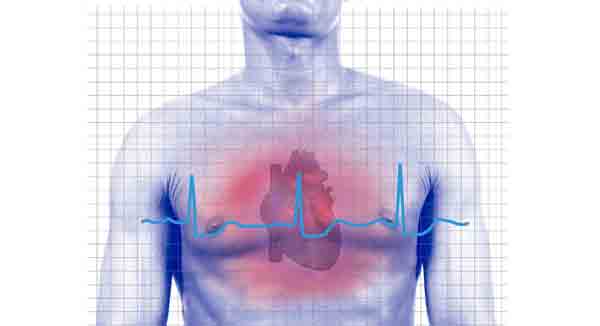Take Heart! A Good Marriage Protects Even After a Bypass

Living in matrimonial bliss may protect your heart, even after a quadruple bypass, a new study shows.
Married heart patients were more likely to be alive 15 years after surgery than singles, and the happier the couple, the greater the chances of survival, the study found.
Researchers at the University of Rochester surveyed 225 patients in the year after a coronary artery bypass graft procedure, which uses a healthy blood vessel from another part of the body to reroute blood flow around a blocked coronary artery.
One year after surgery, the researchers asked married patients and their spouses to rate the quality of their marriages on a scale from one as "very unhappy" to seven as "perfectly happy."
Fifteen years later, the researchers tracked down the heart patients to see who was still living. They found 61 percent of those who were married had survived, while only 29 percent of those who weren't married had.
Moreover, of those who were married at the time of the survey, 83 percent of those with the happiest marriages were living 15 years later, but just 55 percent of the most unhappily married group survived that long. When the researchers adjusted for the influences of age, education and depression, the correlation between marital happiness and survival remained.
Women's survival
Sign up for the Live Science daily newsletter now
Get the world’s most fascinating discoveries delivered straight to your inbox.
When the researchers separated the sexes, they found the importance of happiness in marriage had no affect on women's survival rate.
Study researcher and nurse Kathleen King said the difference between men and women may have been due to the smaller number of women in the study.
At the time the study started, in 1987, King said fewer women than men were diagnosed with heart disease and therefore fewer women were getting bypass surgery: 77 percent of the participants were men.
"If we had a sample size of women the same size as we did for men, we probably would have found the same statistical difference for men and you did for women," said King, who is a professor emeritus of nursing at the university. Thanks to educational campaigns about women and heart disease, King said, doctors are closing that diagnosis gap.
Is it happiness, or general healthiness?
The results of the study did not surprise Robert Hagberg, a Boston-based cardiac surgeon. "I can only imagine that people who have a good marriage are pretty happy people, so they don't have many destructive behavior patterns they don't drink, they don't smoke, they don't stay out late trying to pick up dates."
The data could not show whether a happy marriage led to healthy behaviors that increased the chances of survival, or if happiness directly influenced coronary artery disease .
But Hagberg said that in any case, heart patients have power to influence their fate after surgery.
"[Heart disease] is a progressive disease, we don't cure the disease," said Hagberg, a surgeon at Beth Israel Deaconess Medical Center. New plaque can build up in a person's arteries after the procedure, or even in the arteries placed near the heart in the surgery. So Hagberg tells his patients to be careful after the operation; visit their physician, take prescribed medication, not to smoke, exercise and eat well.
"If you do those things, you are doing everything in your power to stop the progression of the disease," Hagberg said.
- 5 Ways Relationships are Good for Your Health
- Beyond Vegetables and Exercise: 5 Ways to be Heart Healthy
- 10 New Ways to Eat Well
Follow MyHealthNewsDaily on Twitter @MyHealth_MHND. Find us on Facebook.










